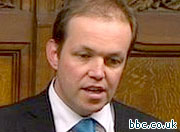The Christian Institute has welcomed MPs’ “wonderful” refusal to open the door to extended Sunday shopping hours in England and Wales.
Yesterday the House of Commons voted 317 to 286 to drop the Government’s controversial Sunday Trading plans.
Find out how your MP voted
Institute Director Colin Hart said he was “delighted” that so many MPs had backed calls to derail the plans.
Delighted
Mr Hart said: “This is a wonderful and encouraging victory for the millions of people who would have had their family life further undermined had this blinkered legislation gone through.
“There is no doubt that it would have led to more pressure on people to work on Sundays, harming family life and further interfering with Sunday as a day of rest.
“I’m delighted that MPs from all the main parties have joined together to do the right thing. This is a day to remember.
“The proposed law offered no real protections for Christians who do not wish to work on a Sunday or people who simply want to keep Sunday as a family day.”
Special day
During the debate MPs from across the political spectrum spoke out against the plans. Conservative MP David Burrowes, a Christian, led the debate.
Mr Burrowes said that “Sunday is still special for many people”, adding: “We should ensure that there is a proper place for Sundays for families, businesses and workers.”
Labour MP Jonathan Reynolds also spoke against the proposals and stressed that “Christianity is the largest religion in this country”.
He said: “Sunday is when my family and I attend church, and the opportunity to do so should not be denied to people who have to work Sundays, whether in the morning or the evening.”
Respect
Following the vote, Labour Shadow Secretary of State for Business, Innovation and Skills, Angela Eagle said that weakening the law on Sunday Trading would have “affected millions of workers”.
She added: “Can we now hear from the Government that they will respect the will of this House and abandon their tawdry attempts to reintroduce this proposal?”
The Government’s consultation on the plans received more than 7,000 responses. In its response, the Government noted that trade unions, religious bodies and a number of small businesses and individuals were against the proposals.
However, it decided to press on claiming that the majority of local authorities and large and medium-sized businesses that responded were supportive.
Dropped
In a legal opinion John Bowers QC, a leading authority on employment law, said the plans offered no protection from detriment or dismissal for people who object to working on Sundays during the opt-out notice period.
Mr Bowers also noted that there was nothing to prevent employers from turning down a job applicant just because they will not, or are unlikely to, work on the Sabbath.
The Government was previously forced to abandon plans to extend Sunday Trading in November last year.
The proposals were set to be included in the Cities and Local Government Devolution Bill, but were dropped after opposition from Conservative, Labour, SNP and DUP MPs.

